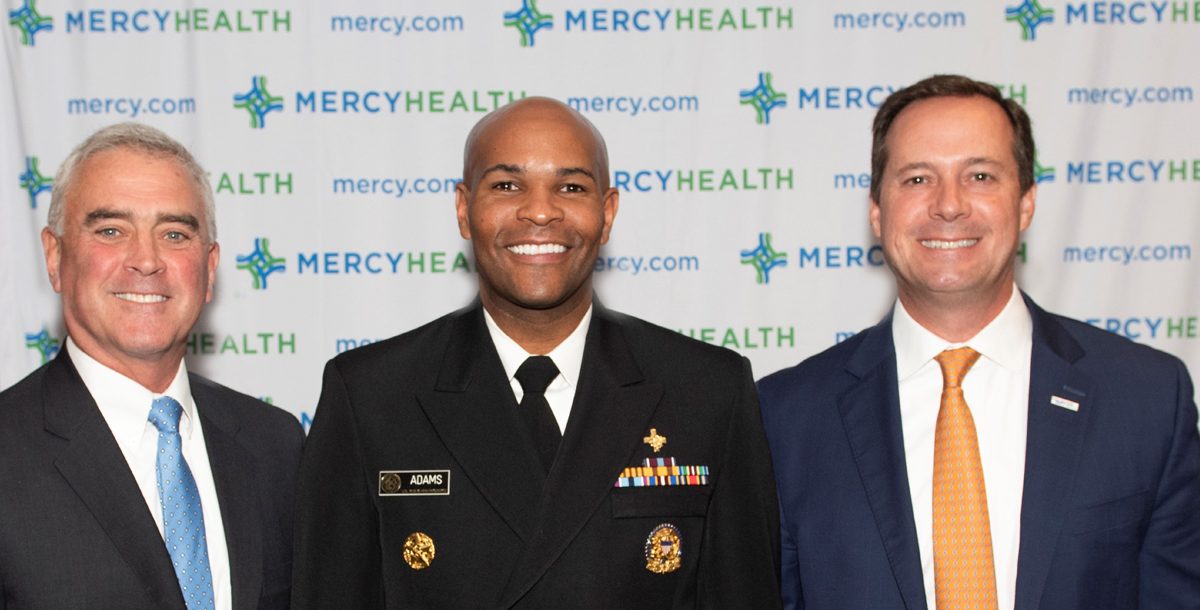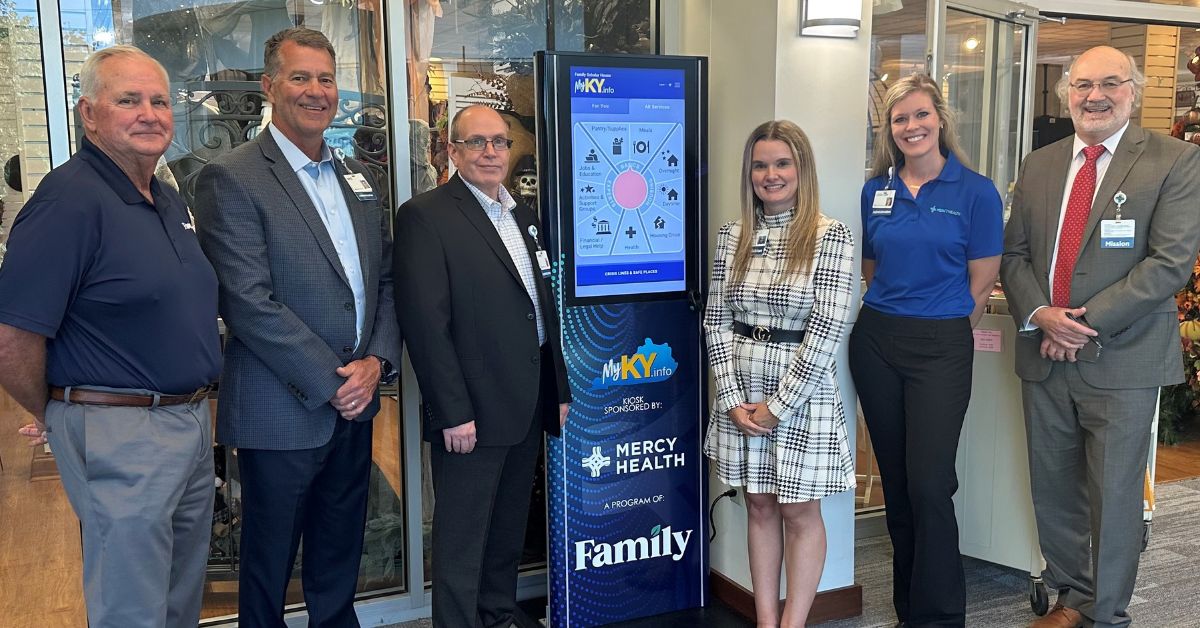The United States Surgeon General VADM Jerome Adams, MD, MPH, and US Representative Brad Wenstrup, DPM, visited Mercy Health – Anderson Hospital in Cincinnati on September 5, furthering Bon Secours Mercy Health’s position as a national healthcare thought leader.
The special guests toured the hospital with John Starcher, Bon Secours Mercy Health President and CEO. Ken James, Site President of Mercy Health – Clermont and Anderson Hospitals, was in attendance as well.
After the tour, the group participated in a community roundtable discussion with regional and state healthcare leaders. A host of topics were brought up, including: the expansion of behavioral health in primary care, risks of marijuana use in pregnancy, syringe exchange programs, the increased availability of the overdose medication naloxone, and universal maternal drug screening. Bon Secours Mercy Health facilities have served as pilot facilities for many opioid treatment and prevention programs.
“Hosting Congressman Wenstrup, Surgeon General Adams and the Office of Health and Human Services provided an opportunity to talk through some of the most challenging issues our communities face,” said John Starcher. “Reducing opioid dependency is one of our ministry’s strategic focus areas, and we are committed to addressing the social determinants of health that contribute to health inequities. Being able to share best practices and identify future opportunities will ultimately help lead to better outcomes for our patients.”
This visit comes on the heels of President Trump’s announcement on September 4, indicating that $1.8 billion in grants will be sent to states to respond to the opioid crisis. This is the third round of funding to expand access to medication-assisted treatment, naloxone, and other addiction services.
The sum includes $932 million in state opioid response grants from the Substance Abuse and Mental Health Services Administration and $900 million over three years under a CDC program to improve data collection among local and state governments. Ohio will receive $140 million in federal funding for treatment, recovery and prevention services, as well as approximately $20 million in CDC grants for data collection. Treatment providers receiving this funding must offer medication-assisted treatment, which is considered the gold standard for fighting opioid addiction.
President Trump’s announcement came as overdose deaths appear to be slowing, according to preliminary CDC data that showed a 5 percent decline between 2017 and 2018. However, deaths from fentanyl and methamphetamine have been trending upward.
“Opioid dependency is a disease and not a moral failing,” said Surgeon General VADM Adams, who issued a US Surgeon General Advisory on Naloxone and Opioid Overdose in 2018. “We must move past the stigmas associated with behavioral health issues and addiction, and work together to determine the root causes. We must focus on prevention, make naloxone available, and embrace recovery.”
Visit Mercy.com to learn more about our healthcare services.






